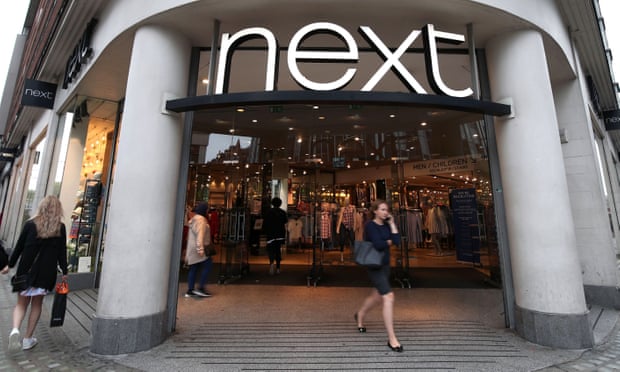Next’s figures will be released on Thursday and could be down 13% on last year
The City is bracing itself, to discover just how brutal Christmas 2018 was for the UK high street, with a string of crucial announcements threatening to add to retailing’s woes.
The key period comes as panic mounts within the sector after the Sports Direct tycoon Mike Ashley said last month that trading was so bad for many chains it “will literally smash them to pieces”. Music and film retailer HMV and regional menswear chain Greenwoods have both slumped into insolvency over the past few days.
Sector analysts will now be looking towards a Christmas trading update on Thursday from the industry bellwether Next, for an indication of how difficult trading has been. Analysts at broker Jefferies said last week that in-store sales at the fashion chain could be down 13% on last year, and predicting that the retailer would downgrade its profit guidance. In the three months to the end of October, Next’s shop sales were down 8%.
The clothing retailer’s numbers will be followed next week by other well-known high street names, including Marks & Spencer and Debenhams, with trading at the latter thought to have been so poor that some market watchers forecast it will be forced into an emergency stock exchange statement ahead of its annual meeting next week.
Nick Bubb, an independent retail analyst, said: “Debenhams would probably like to delay their trading update until [its annual general meeting on] the 10th so that Mike Ashley [who controls a 29% stake] doesn’t have time to organise a shareholder revolt at the AGM, but I suspect the truth will have to out.
“The vultures are clearly gathering outside M&S headquarters and poor Steve [Rowe, the chief executive] is the obvious guy to blame for the disastrous Christmas trading.”
Apart from Sports Direct controlling a 29% stake in Debenhams, the company also acquired rival House of Fraser out of administration in August. Like Marks & Spencer, Debenhams is suffering as rising rents, business rates and wages drive up the cost of running physical stores at a time when shoppers are increasingly spending online.
Marks & Spencer is the UK’s second most shorted stock – a bet by City speculators that the shares will fall. At the end of last week, 10 hedge funds held short positions equivalent to almost £440m, or 11.2% of the retailer’s shares, according to data reported to the Financial Conduct Authority. At least 10.3% of shares in Debenhams are on loan to short sellers, as are 8.8% of shares in Pets at Home.
Looking ahead to the update from Next, Diane Wehrle, a marketing director at the retailing analyst firm Springboard, said: “Next tends to do exceptionally well holding its own and resisting the cataclysmic forces to discount outside a sale. It has longevity and has weathered storms before. It is not immune, [but] if Next posts bad store results, I’d be very surprised if other retailers don’t.”
Initial data from Springboard showed that the number of shoppers visiting physical stores fell by around 3% in the week to last Saturday when compared with last year, a drop in line with declines throughout the Christmas trading period. In-store shopper numbers on Boxing Day also fell by 3.1% year on year.
Last week HMV became the first casualty of the slump in Christmas trade on the high street, collapsing into administration for the second time in six years and putting more than 2,200 jobs at risk.
The retailer – which accounts for nearly a third of all physical music sales in the UK and nearly a quarter of all DVD sales – appointed insolvency experts from the accountancy firm KPMG as joint administrators on Friday.
This week Greenwoods, a 40-store menswear chain principally located in the Midlands and north of England, posted notices in its stores saying: “All outlets have closed for business permanently”. According to local reports 181 jobs were at risk.
It is estimated that up to 85,000 retail jobs disappeared from Britain’s high streets in the first nine months of 2018 after a surge in the number of businesses going bust or closing stores.

